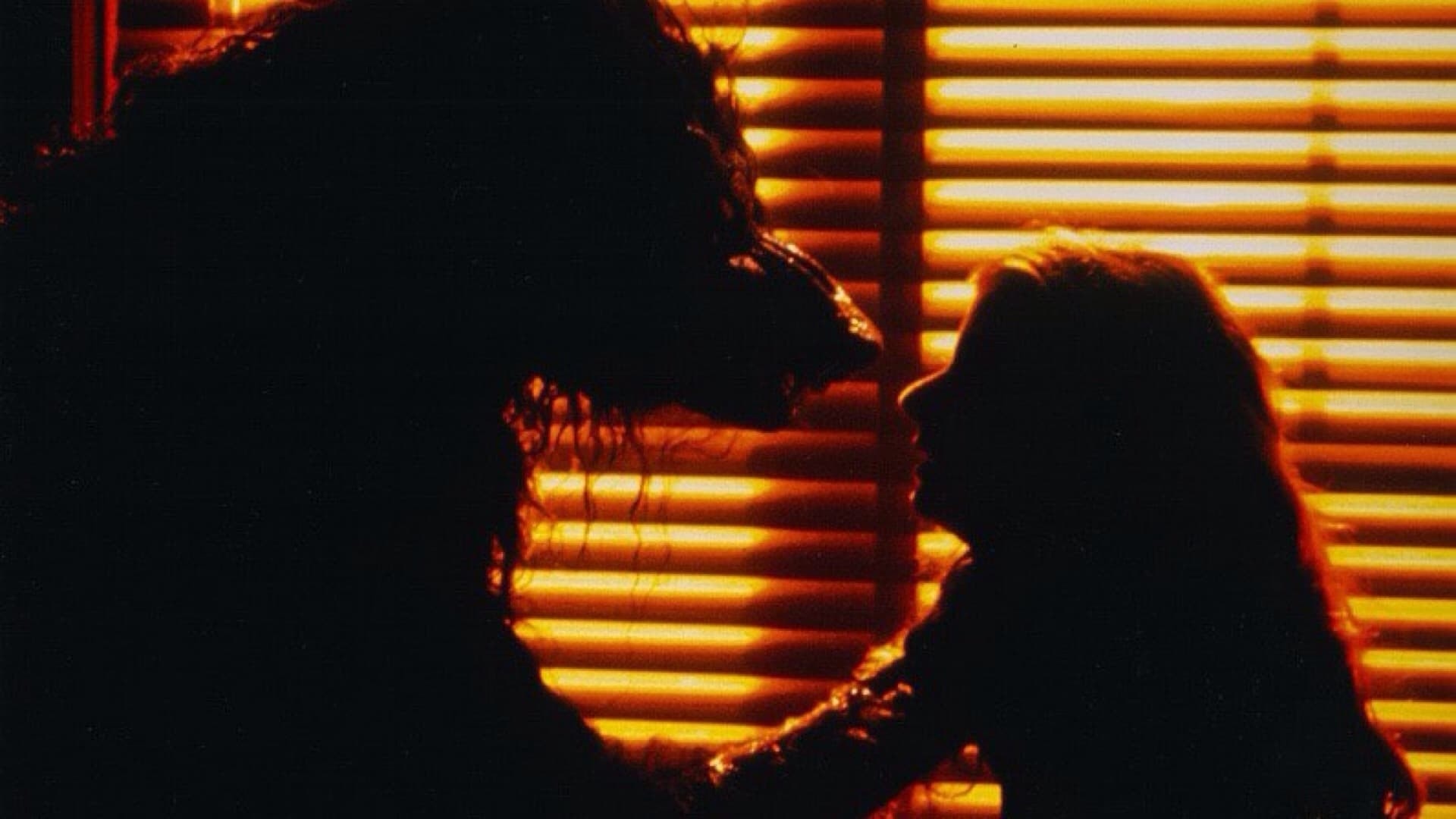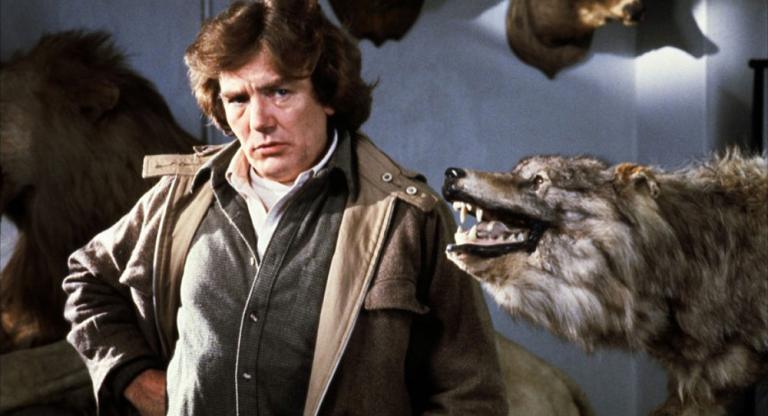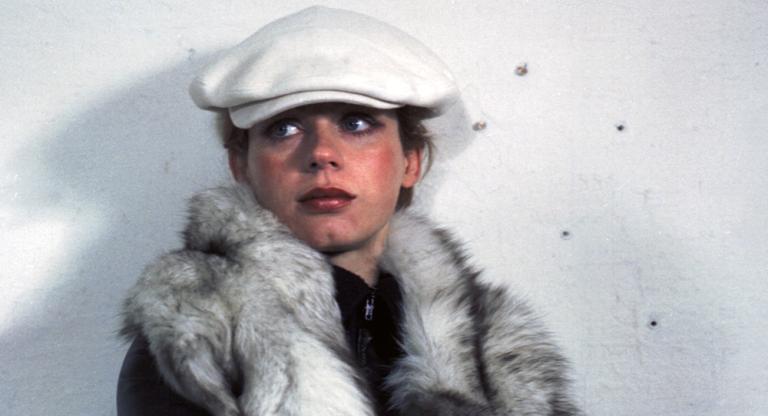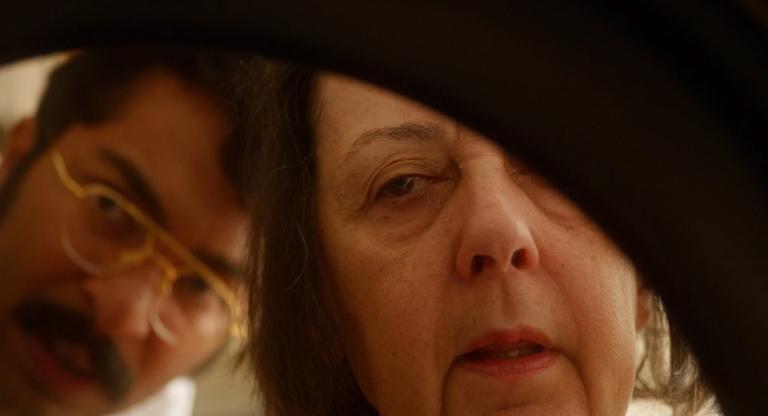Just over four months separated the U.S. theatrical releases of John Landis’s An American Werewolf In London and Joe Dante’s The Howling in the spring and summer of 1981. A season that ultimately belonged to chart-topping, family-targeted blockbusters like Raiders of the Lost Ark and Superman II was also peppered with lycanthropes. In fact, Landis and Dante weren’t even the only filmmakers to tackle the iconic werewolf in those four months, as Michael Wadleigh’s NYC set urban horror spectacle Wolfen was released between the two that July. One film is always first though and that film is Joe Dante’s The Howling.
The Howling, like Dante’s prior work (The Movie Orgy, 1968; Hollywood Boulevard, 1976; Piranha, 1978), is very much about, and informed by, movies themselves. In conversation with other werewolf-focused narratives, cinematic and literary, Dante’s film explicitly references everything from “Little Red Riding Hood” to The Wolf Man (1941) to The Curse of the Werewolf (1961). Like many of his future efforts, The Howling is a smorgasbord of inspirations, obsessions, and provocations.
That narrative is likely more dense than you remember, or would expect on a first viewing, too. The Howling, like An American Werewolf In London, is remembered with reverence for it visceral transformation sequences. Equally impressive is Dante’s prowess with a horror story set in the world of news media. A television anchor (Dee Walace), following a headline-grabbing encounter with a serial killer, goes to recuperate in a rural retreat only to find something even more terrifying. Constantly wrestling with the liabilities of the press and the very nature of reporting on violence in the U.S., Dante’s film is as much a work of ’80s sociopolitical didactics as it is gruesome body horror; equal parts Broadcast News (1987) and The Beast Within (1982), the latter of which was undoubtedly influenced by this film.
It is surprising just how straight Dante plays the horror elements of The Howling, especially compared to Landis’s film. Though it is often considered a horror-comedy, a hybrid Dante had explored in Piranha and would return to with Gremlins (1984), his werewolf film is hardly full of laughs. Though the director’s trademark wit remains apparent and some of the more obvious film references will elicit chuckles from savvy cinephiles, The Howling is often resoundingly mean, a film that is consistently focused on the violence humans do to their environment, others, and even themselves. The kills are brutal, much more uncompromising than what Landis would put on screen (though not as gory), and the transformation sequences render the body into a malleable mass of distorted tissue and bone, Dante revealing the monstrosity at the substrate of the human form. The Howling is not only the antithesis of Landis’s film but one of the darkest, smartest, and scariest horror films of the decade.
The Howling screens tonight, November 8, at the Roxy Cinema.




